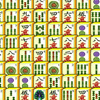Rethinking Lifestyle
Human Productivity and Energy Efficiency
We are facing two elections, one in Manitoba and one federal. Because we live in a democracy, we get to have some say in who our leaders will be; who will make policy and who will speak for us. We here at the South Eastman Transition Initiative would like for the discussion in the lead-up to these elections to focus on how we humans, the planet’s dominant species, relate to the planet we depend on. We think the crucial question is whether human activity is primarily one of stewardship or one of extraction; whether our focus is on leaving the planet a rich resource for our children or whether our focus is on extracting as much from the planet as we can for our own enjoyment.
To that end we will post a series of articles suggesting ways we look at the relationship we have with energy.
In the years since southeastern Manitoba was settled by European immigrants about 140 years ago, the increase in human productivity has been remarkable. In food production alone, consider that 140 years ago, about 70% of the population was committed to farming. By contrast, today it is less than 5% of the population. And this increase in productivity is not limited to food production. It extends into all areas of production.
This achievement would be wonderful and totally applaudable if increased productivity equated with increased efficiency. Unfortunately, it does not.
Efficiency has to do with energy-in versus energy-out. So someone sitting next to a wild saskatoon bush, who needs only to get up and pick his next meal is extremely efficient. It may take less than 5 calories of energy to pick enough saskatoons to give him 100 calories of energy. But what about the energy required to get to the saskatoon bush? Intuitively, we all know that walking a short distance to get to the saskatoons makes sense, but beyond a certain distance, it does not make sense. The energy required to get to the saskatoons is simply too great. We would expend more energy getting to the saskatoons than we get back from the saskatoons. For thousands of years that simple, logical economy applied.
But now we have introduced the automobile. With that piece of innovation, it makes economic sense to travel a long distance to pick the saskatoons – economic sense because we price gasoline on the basis of what it takes to get it out of the ground. But in fact the amount of energy consumed by the car to get to the saskatoons is much more than the energy we get from the saskatoons when we eat them.
This has been the pattern in the industrialization of food production. Every innovation has made economic sense [because we price gasoline at the cost of extraction]. We have substituted fossil energy for human energy, and by so doing have made humans dramatically more productive, but have made the production of food less efficient.
It now takes, on average, three units of energy to produce one unit of energy output. In the case of grain-fed beef, it takes 12 units of energy input to produce one unit of energy output. In the case of fertilizer, it takes 1.5 units of energy in the form of fossil natural gas, to produce one unit of energy in food. This is not sustainable. It is impossible for this to go on on the long run. Things will need to change. So sustainability is one concern.
There is another concern. The time is coming when natural gas will be dramatically more expensive. The supplies of readily available natural gas will have been used up. This means will need to move to a more efficient method of food production, one that uses less energy input. This will be challenging because all of the infrastructure we depend on is compatible with cheap energy, not expensive energy. We will adjust, but it will be challenging. How much better if we had had policy earlier that would encourage such adjustment.




